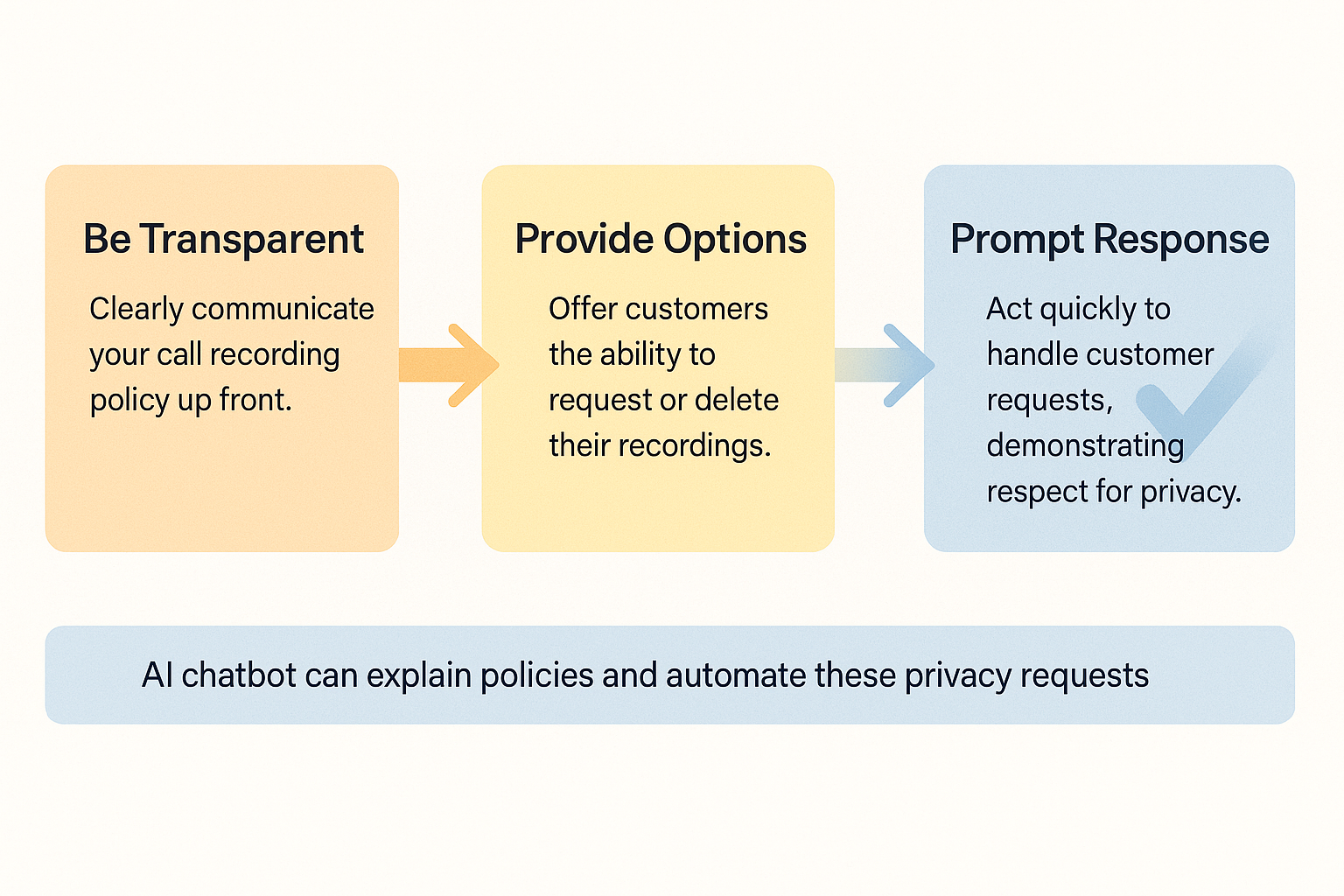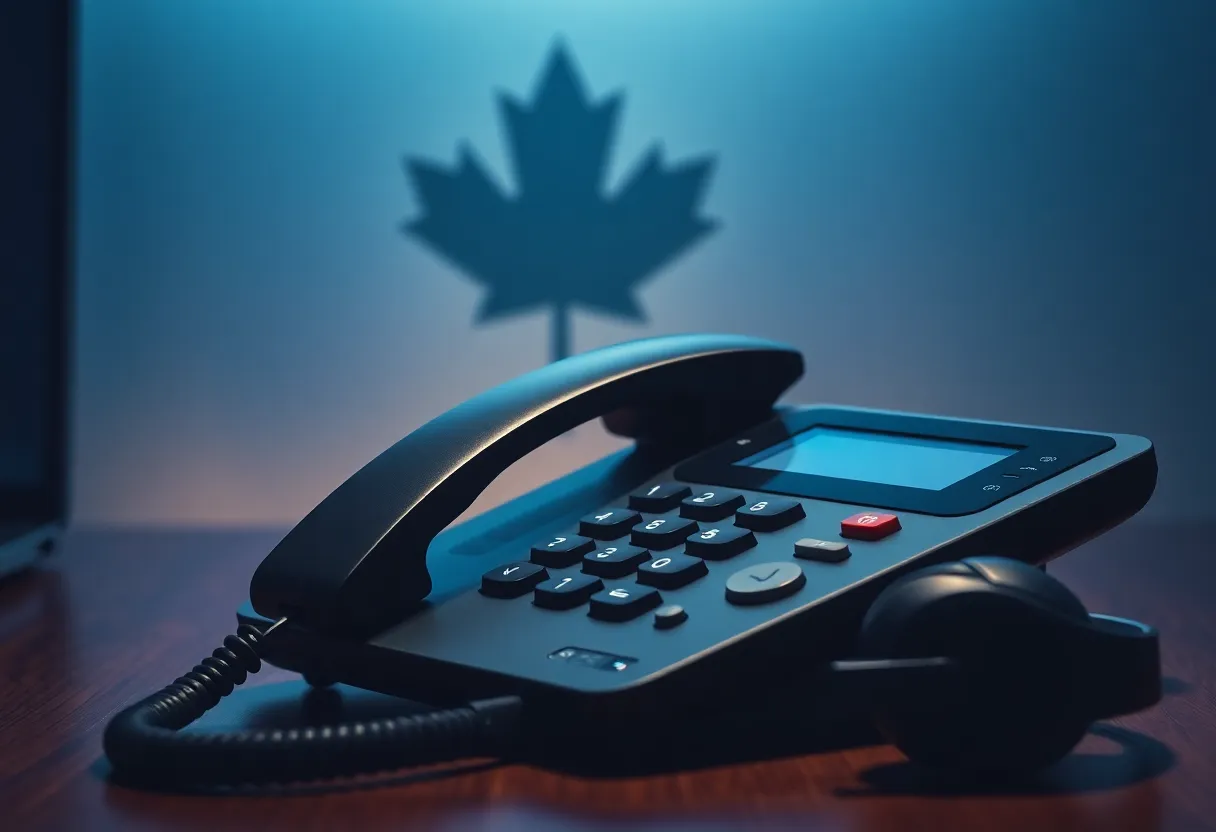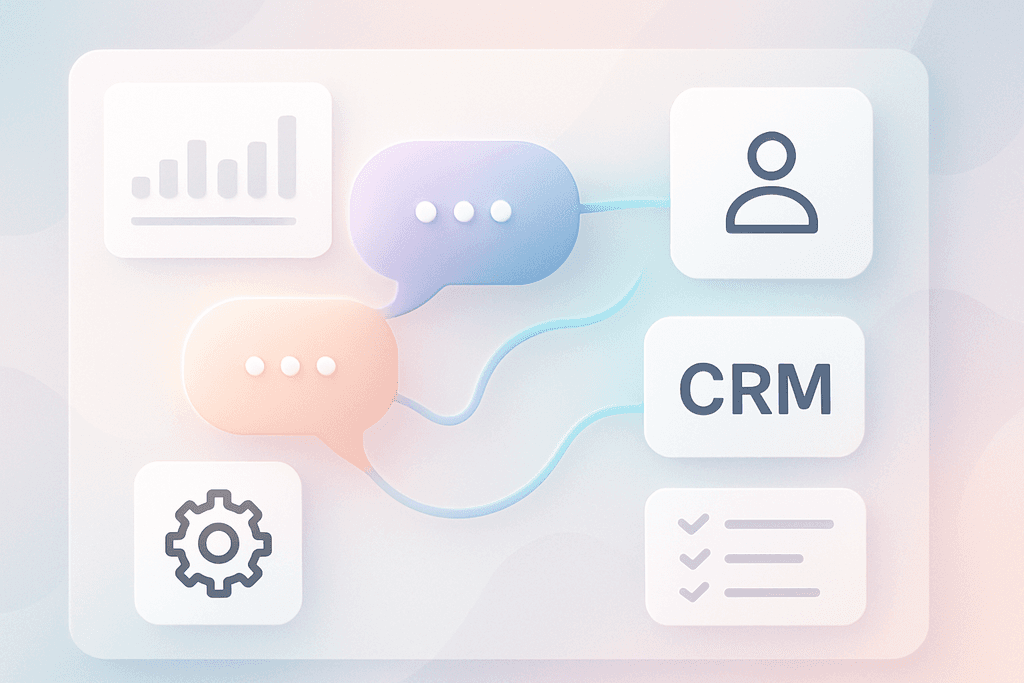Small businesses in Canada face a legal minefield when it comes to recording customer calls. Failing to obtain proper consent can lead to hefty fines and damaged reputations. Understanding the nuances of call recording laws is crucial for protecting your business while building customer trust and improving service quality.
Table of Contents
- Call Recording Laws in Canada
- Obtaining Proper Consent
- Balancing Compliance and Business Needs
- Wrap-up Call Recording Compliance
- Common Questions About Call Recording Consent
Call Recording Laws in Canada
Did you know that 85% of Canadian businesses record customer calls? This practice has become widespread, but it comes with legal responsibilities. Understanding call recording laws is crucial for small businesses to avoid hefty fines and maintain customer trust.
Canada's call recording regulations stem from privacy laws at both federal and provincial levels. The main law to know is the Personal Information Protection and Electronic Documents Act (PIPEDA). It sets rules for how businesses collect, use, and disclose personal information.
Here are key points about call recording consent in Canada:
- One-party consent is generally allowed for private conversations
- Business calls often require two-party consent
- Callers must be informed that the call is being recorded
- Consent can be implied if the caller continues the call after being notified
- Specific rules may vary by province
The penalties for violating these laws can be severe:
- Fines up to $100,000 for individuals
- Fines up to $1,000,000 for businesses
- Potential criminal charges in extreme cases
Small businesses often struggle with managing call recordings properly. Our Small Business Chatbot can help automate consent processes and manage recordings securely, ensuring compliance without the hassle.
Here's a quick look at consent requirements across Canada:
| Region | Consent Type | Key Law |
|---|---|---|
| Federal | One-party | Criminal Code |
| Quebec | Two-party | Civil Code |
| Ontario | One-party | PIPEDA |
| British Columbia | One-party | PIPA |
As call recording technology evolves, so do the laws. Staying informed and using the right tools can help small businesses navigate these waters safely.
Obtaining Proper Consent
When it comes to call recording for small businesses in Canada, getting consent is key. You need to let callers know they're being recorded right off the bat. No sneaky stuff allowed.
There are two main ways to get consent:
- Opt-in: Callers actively agree to be recorded
- Opt-out: Callers are told recording is happening unless they object
Most businesses use the opt-out method. It's simpler, but you still need to give folks a clear chance to say no.
Here's the thing - just saying "calls may be recorded" isn't enough. You need to actually get consent, not just give a heads up. And keep a record of who agreed and when. This can save you major headaches down the road.
Implementing Compliant Recording Systems
Setting up a proper call recording system takes some planning. You can't just hit record and hope for the best. Here are some key steps:
- Choose recording software with built-in consent features
- Train your team on how to properly get and document consent
- Set up secure storage for recordings with strict access controls
- Create a process for deleting recordings after a set time period
The tech part is important, but don't forget about your people. Make sure everyone knows the rules around recording calls. A quick slip-up could land you in hot water.
Speaking of tech, our AI voice agent handles consent automatically. It asks callers for permission to record and logs their response. Just saying.
Best Practices for Small Businesses
Staying on the right side of call recording laws doesn't have to be complicated. Here are some practical tips:
| Do | Don't |
|---|---|
| Create a clear call recording policy | Assume callers are okay with being recorded |
| Train staff regularly on consent procedures | Hide the fact that you're recording |
| Have a process for handling recording requests | Keep recordings longer than necessary |
Regular check-ins on your recording practices are smart. Laws can change, and you want to stay ahead of the game. Plus, it shows customers you take their privacy seriously.
Remember, if a customer asks about a recording, you need to be ready. Have a clear process for accessing and sharing recordings when needed. It's all about building trust.

Handling Customer Requests
Sometimes customers will ask about recordings. Here's how to handle it:
- Be transparent about your recording practices
- Explain why you record calls (quality assurance, training, etc.)
- Have a process for customers to request or delete their recordings
Dealing with these requests promptly shows you respect customer privacy. It's good business and keeps you compliant.
By the way, our AI chatbot can handle a lot of these customer questions automatically. It's trained to explain your recording policy clearly and consistently. Just another way to make life easier for small businesses.
Balancing Compliance and Business Needs
Small businesses in Canada face a tricky balancing act when it comes to call recording. On one hand, recordings can be incredibly useful. On the other, strict consent laws make implementation challenging.
Let's break down the key considerations:
- Customer privacy concerns
- Business needs for quality assurance
- Legal compliance requirements
- Potential competitive advantages
Many businesses find that the benefits outweigh the challenges when done right. Proper consent practices build trust with customers while still allowing companies to improve their service.
Here's how smart businesses are leveraging compliant call recording:
- Using recordings to train new employees
- Analyzing calls to identify common customer pain points
- Resolving disputes with clear records of conversations
- Demonstrating regulatory compliance in regulated industries
The key is finding user-friendly tools that make compliance easy. Our Small Business Chatbot, for example, can handle consent requests automatically for voice calls. This takes the burden off your team while still protecting customer privacy.
Ultimately, call recording done right is a win-win. Customers feel their privacy is respected. Businesses gain valuable insights. With the right approach, you can turn regulatory requirements into a true competitive edge.
Wrap-up Call Recording Compliance
Navigating call recording consent laws in Canada can be tricky for small businesses. The key takeaway is that you generally need to inform all parties that the call is being recorded. This applies whether you're using a basic phone system or an AI-powered voice agent like the one offered by Small Business Chatbot.
Remember, laws can vary by province and may change over time. It's smart to regularly review your call recording practices to stay compliant. If you're unsure, consider checking out our guide on choosing the right chatbot for your small business, which includes info on voice features and compliance.
For businesses looking to streamline customer communication while staying on the right side of the law, AI solutions can help. They can handle consent notifications automatically, freeing you up to focus on your core business. Just make sure any tool you use is set up correctly to meet Canadian legal requirements.
As we wrap up, remember that good communication practices go beyond just following the law. They're about building trust with your customers. By being transparent about call recording, you're laying the groundwork for stronger relationships. And isn't that what good business is all about?
Next up, we'll tackle some frequently asked questions about call recording consent in Canada. These should help clear up any lingering confusion and point you in the right direction for your specific situation.
Common Questions About Call Recording Consent
Do B2B and B2C calls have different consent rules?
While the basic principles of consent apply to both, B2C calls often require more stringent consent practices. For B2B calls, implied consent may sometimes suffice, but it's safer to obtain explicit consent for all recordings. Our Small Business Chatbot can help automate consent requests for different call types.
What if I accidentally record a call without consent?
If you realize you've recorded a call without proper consent, stop the recording immediately. Delete the recording and do not use any information obtained. It's crucial to have clear policies and training in place to prevent such accidents. Consider using an automated system that requires consent confirmation before starting any recording.
Are there different consent requirements for various call types?
Yes, consent requirements can vary based on the nature of the call. For example:
- Customer service calls may require a simple notification at the start
- Sales calls might need more explicit consent
- Calls discussing sensitive information may require written consent
How can I ensure I'm compliant with call recording laws?
To stay compliant:
- Develop a clear call recording policy
- Train your staff on consent procedures
- Use automated systems to manage consent
- Regularly review and update your practices
What information should I provide when asking for consent?
When requesting consent, inform the caller:
- That the call may be recorded
- The purpose of the recording
- Who will have access to the recording
- How long the recording will be kept



